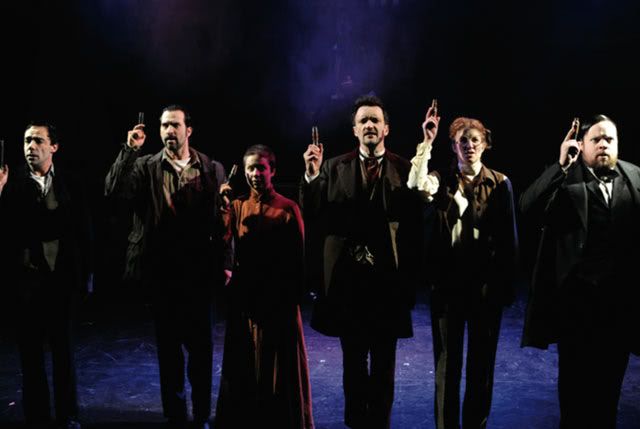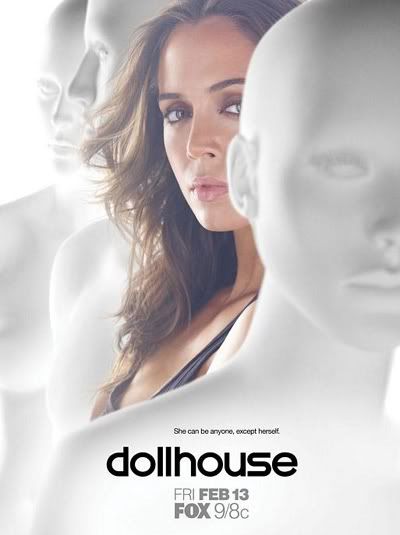And yet the end result can be so much more than entertaining fluff or mindless spectacle. Whenever people say they “don’t like musicals”, I can’t quite overcome the suspicion that they simply haven’t seen the right ones. It’s a situation similar to horror movies or comic books, actually. To someone who’s had only a superficial, mainstream exposure to the genre, it’s tempting to dismiss it as being a certain way, when the more intriguing, less heightened works that might appeal more directly to an open-minded audience are often perversely more obscure. Horror movies, at a glance, can seem like brain-dead shriekfests that revel in sleaze and base exploitation. Comics can seem like juvenile, impenetrable hackwork with a restrictive focus on the subgenre of superheroes. And musicals can seem like hollow, campy throwbacks. Yet, when done with wit and a modicum of ambition and imagination, all three of these can be among the smartest, most challenging, most resonant forms of storytelling pop culture has to offer.
Exhibit A in the argument for musicals as an intellectual artform: Stephen Sondheim’s Assassins.

I’ve now seen this show twice, and I’m pretty sure it’s up there with my very favourite musicals, precisely because of just how far it deviates from what we normally think of as a standard musical. It’s highly conceptual, plotless, avant-garde even. And yet I find it to be highly accessible, to the point where I’d heartily recommend it to people who think they hate musicals.
The show is done in a revue style, with a couple of linking ideas, most notably that of a shooting gallery on a midway; the show opens with “The Proprietor”, a carnival barker, exhorting the passers-by to try their luck at shooting the President of the United States. And sure enough, the people who take him up on his challenge are all people who attempted, successfully or otherwise, to assassinate various Presidents, all of whom co-exist, for the purposes of the show, in some impossible dreamspace outside of time. For the record, the full list of assassins for most of the show consists of John Wilkes Booth (who shot Lincoln, of course), Charles Guiteau (Garfield), Leon Czolgosz (McKinley), Guiseppe Zangara (FDR, attempted), Samuel Byck (Nixon, attempted), Lynette ‘Squeaky’ Fromme (Ford, attempted), Sara Jane Moore (Ford, attempted, again), and John Hinckley (Reagan, attempted). They’re joined by various civilians and a figure called The Balladeer, who, by the end of the show, has transformed into Lee Harvey Oswald. (It’s certainly interesting that you don’t notice, at first, that Oswald isn’t among the group, despite being the most famous.)
What’s cool about this is that, even with no real plot, each character comes pre-packaged with a story arc, one that has an impact whether you know all the historical details or not. Every character gets their scene where they take a shot at the President, except Byck, who tried to hijack an airplane and crash it into the white house; his scenes consist of apparently real tape-recorded monologues that he mailed off to various celebrities, one of whom was Sondheim’s mentor Leonard Bernstein. (I have a suspicion that this is where Sondheim got the inspiration for the show in the first place.) Every character is fleshed out via a scene or two illustrating their various neuroses and obsessions, either one based on real history or one in which they interact with the other assassins. Guiteau has a showstopping number after he’s been caught and is on his way to the gallows; Fromme (a former member of the Manson family) and Hinckley (who, famously, claimed his love for Jody Foster as his motive) share a love song to their respective objects of obsession; Booth is seen trying to make his confession in the barn where he was cornered before being gunned down. Even with all these scattered glimpses, we learn everything we need to know about the characters and the historical context, while still being compelled to hit Wikipedia as soon as we get home to learn more. Simply based on the premise of the show, the omnipresent threat of death, chaos, and insanity hangs over everything, charging every scene with tension and dread, and like a lot of the darker musicals, the seemingly upbeat and sentimental numbers serve as a counterpoint to the rather horrific themes. The show is a triumph of what these guys call “the off-screen movie” (or in this case, the off-stage play).
My favourite number in the show is “The Ballad of Czolgolz” (which is pronounced “SHOW-gosh,” by the way), the crucial number that, I believe, serves as the Act One finale when the show is performed with an intermission (there wasn’t one this time). Czolgosz, a follower of anarchist Emma Goldman who toiled in a horrific bottle-making plant in the pre-Union days, shot McKinley at the World’s Fair in Buffalo after waiting patiently in line to “shake hands with the president”. His was probably the most overtly political assassination attempt (even Booth was acting more out of revenge and wounded pride) and he’s arguably the most sympathetic of the assassins. His killing of McKinley unifies the show in a number of ways—the fact that it took place at a literal fairground brings back the shooting gallery motif, and it’s a perfect metaphor for the promise of America from which Czolgosz feels he’s been exempted. When the balladeer sings “in the USA/you can make your way/to the head of the line” the show’s theme becomes explicit: killing the president is, in its own twisted way, a realization of democracy, egalitarianism, and the American dream.
